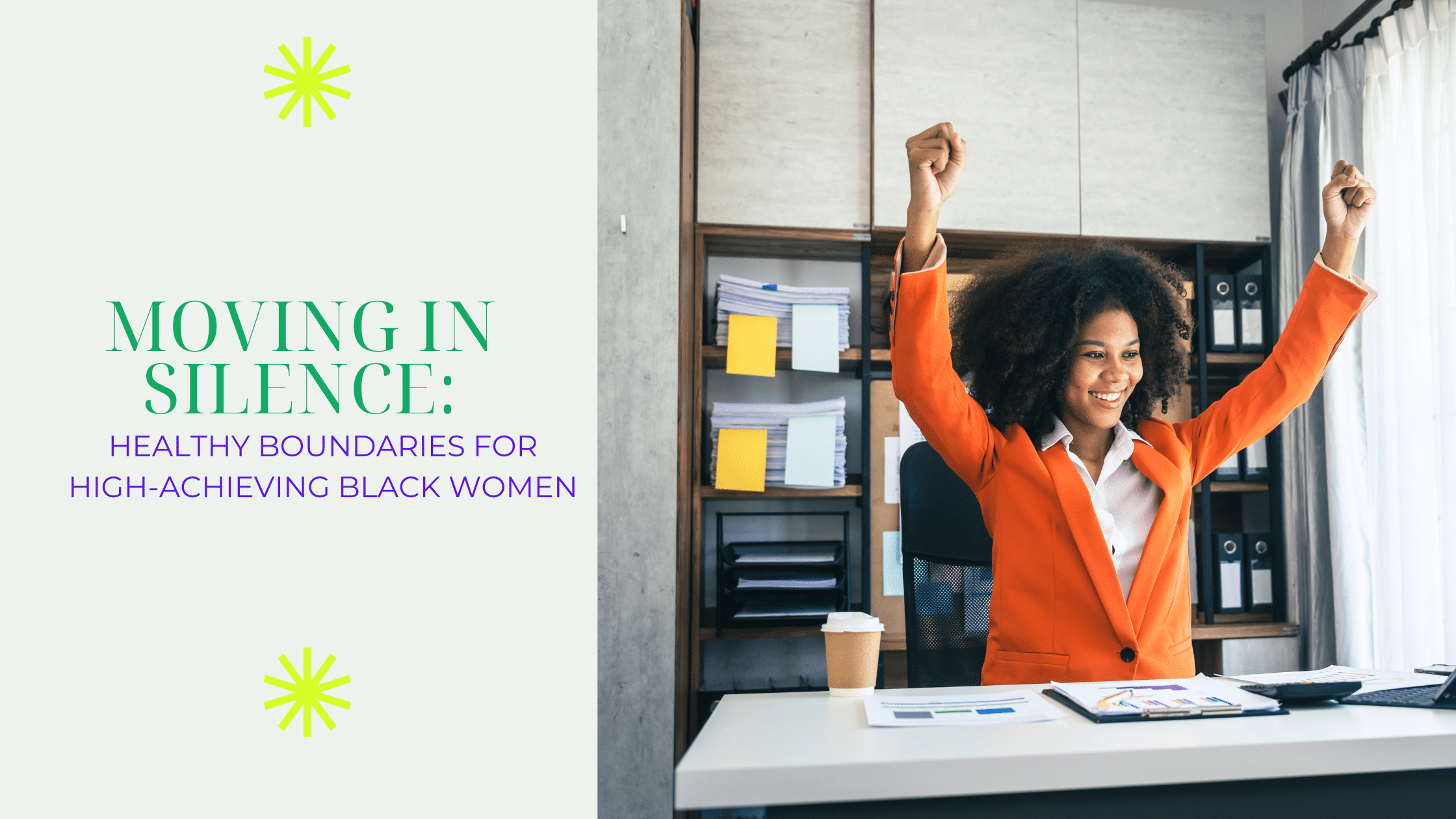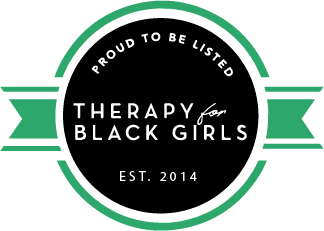Dr. Iman Hypolite is a double board certified Johns Hopkins trained psychiatrist with over 20 years of experience. She specialize in providing culturally sensitive care to high achieving women of color with depression, anxiety, and professional burnout in high achieving women of color. If you’re looking for a culturally competent women’s psychiatrist who gets it, reach out to request your consultation today!
Hi, I am Dr. Iman Hypolite, a double board certified Johns Hopkins trained psychiatrist with over 20 years of experience, and I help Black women THRIVE! I specialize in treating high functioning depression, high functioning anxiety, and professional burnout in high achieving Black women and women of color.
Let’s talk Black Female Depression. Before we get started, please excuse my use of the word “female”. For whatever reason, it ranks higher for #SEO, and while I am here to share education and resources, SEO unfortunately matters these days, so bear with me…
In a world fixated on edifying strength and resilience, the struggles of Black women often remain hidden behind a façade of superhuman strength, but it’s time to break the silence and shed light on a topic that has long been overlooked – Black female depression. This article aims to delve into the unique experiences and challenges faced by Black women with depression.
From societal expectations to historical traumas, Black women bear the weight of multiple burdens, often resulting in the suppression of their emotional well-being. This discussion is not meant to perpetuate stereotypes but rather to offer a platform for understanding and support.
The hope is that by sharing this, it fosters empathy, awareness, and creates a safe space for open dialogue about and support for women suffering with Black female depression. It is time to break the silence and dismantle the stigma surrounding mental health in the Black community.
The Prevalence of Black Female Depression
Depression affects people from all walks of life, and Black women are no exception. However, studies have shown that Black women are disproportionately affected by depression compared to other racial and gender groups.
Research suggests that Black women are more likely to experience depression and are less likely to seek treatment compared to their counterparts. The reasons behind this disparity are multifaceted, ranging from cultural stigmas surrounding mental health to the lack of accessible and culturally competent mental health services.
Additionally, the intersectionality of race and gender further compounds the challenges faced by Black women, leading to increased vulnerability to depression. By understanding the unique experiences of Black women, we can begin to address this issue more effectively and provide the support needed for healing and recovery.
Unique Challenges Faced By Black Women With Depression
Black women face a myriad of challenges when it comes to dealing with depression. The experiences of Black women are shaped not only by societal factors but also by historical traumas and systemic inequalities.
One significant challenge faced by Black women is the pressure to conform to societal expectations of strength and resilience. This expectation can often lead to the suppression of emotions and the neglect of one’s mental well-being. It can interfere with Black women’s ability to show vulnerability. It can hinder Black women from experiencing psychological safety in their workplaces, intimate relationships, family life, and overarching community. Additionally, studies are increasingly showing that the historical traumas endured by Black women during slavery and the subsequent years of systemic oppression have been passed down intergenerationally to Black women today and can contribute to the development and exacerbation of depression even now.
Moreover, the unique experiences of Black women within the healthcare system can also pose challenges. The lack of representation and cultural competence in mental health services can lead to misdiagnosis, inadequate treatment, and a lack of trust in seeking help. It is crucial to address these challenges and create a more inclusive, culturally sensitive, and supportive environment for Black women struggling with depression.
Societal Factors Contributing To Black Female Depression
The societal factors contributing to Black female depression are multifaceted and deeply rooted in systemic inequalities. One significant factor is the burden that many Black women feel they have to fulfill multiple roles and responsibilities in their homes, families, and workplaces, that are generally not assigned to or carried out by others. The pressure to be strong, independent, and successful in various domains can take a toll on mental health. Additionally, the impact of racism and discrimination on daily life can lead to chronic stress and contribute to the development of depression and other health issues.
Furthermore, the lack of representation and positive portrayals of Black women in media and society can perpetuate feelings of invisibility and low self-esteem. These societal factors play a significant role in shaping the experiences of Black women and must be addressed to create a more psychological safety for Black women.
The Impact Of Intersectionality On Mental Health
Intersectionality is the interconnectedness of various social identities, and it plays a crucial role in shaping the mental health experiences of Black women. For Black women, the intersection of race and gender creates a distinct set of experiences and challenges that influence mental health, physical health, and overall quality of life outcomes. The intersectionality of identities can lead to increased exposure to discrimination, microaggressions, and other forms of oppression, which negatively impact mental well-being.
Moreover, the concept of intersectionality acknowledges that individuals have multiple identities that intersect and interact with one another. This recognition is crucial in understanding the complex experiences of Black women and developing targeted interventions and support systems that address their specific needs.
Irritability as a Predominant Feature of Black Female Depression
In many cases, irritability can be a more predominant feature of Black female depression compared to the traditional symptoms often associated with depression. Instead of expressing overwhelming sadness, tearfulness, or hopelessness, black women may exhibit irritability, physical manifestations of depression and stress, or emotional distress as primary indicators of their inner turmoil.
Cultural Stigmas Surrounding Mental Health In The Black Community
Cultural stigmas surrounding mental health in the Black community can pose significant barriers to seeking help and receiving adequate support. Historically, mental health has been taboo in many Black communities due to cultural beliefs, religious influences, and the fear of being seen as weak and unaccepted. The lack of open dialogue and understanding surrounding mental health issues can prevent Black people from seeking the help they may need.
Addressing cultural stigmas requires education, awareness, compassion, and community support. By challenging these stigmas and promoting mental health literacy, we can create a more supportive environment for Black people to seek help and prioritize their mental well-being.
Seeking Help: Overcoming Barriers To Treatment for Black Female Depression
Seeking help for depression can be challenging, particularly for Black women who face unique barriers to treatment. One significant barrier is the lack of accessible and culturally competent mental health services. The scarcity of mental health professionals who understand the unique experiences and cultural nuances of Black women can prevent individuals from seeking help or receiving appropriate treatment.
The financial constraints associated with mental health services can be a significant barrier for many Black women. The cost of therapy and medication can be prohibitive for many, leaving individuals without access to the care they require. Additionally, transportation, time off from work, traffic, and child care can present as additional barriers to one’s ability to access care. Addressing these barriers requires systemic changes, including increased funding for mental health services and the training of culturally competent professionals.
Healthy Self-Care Practices For Black Female Depression
Coping with depression can be challenging, but there are various strategies and self-care practices that can help Black women manage their mental health. This section aims to explore these coping mechanisms and provide practical tips for self-care.
Engaging in regular physical activity, such as exercise or yoga, can have a positive impact on mental well-being. Additionally, incorporating mindfulness and relaxation techniques into daily routines can help reduce stress and promote emotional well-being. Meditation, also known as prayer, has been shown in studies to improve both mental health and physical health outcomes. The combined use of spiritual and mental health practices is superior to using either one alone.
Building a support network of trusted individuals who understand and validate your experiences can provide a crucial source of emotional support. Seeking therapy and the care of a psychiatrist from culturally competent mental health professionals can also be beneficial in managing depression and navigating the unique challenges faced by Black women.
Furthermore, prioritizing self-care and setting boundaries are essential. Taking time for oneself, engaging in activities that bring joy, and practicing self-compassion are all important aspects of maintaining mental well-being.
Support And Resources For Black Female Depression
Having access to support networks and resources is vital for overcoming Black female depression. Organizations and initiatives dedicated to mental health advocacy within the Black community can provide resources, education, and support. These organizations play a crucial role in raising awareness, reducing stigma, and ensuring that Black women have access to the help they need. Once such organization is Black Psychiatrists of America. If for some reason access to support within or for the Black community is not readily available in one’s area, online communities, support groups, and forums can provide a safe space for Black women to connect, share experiences, and seek support. These virtual communities offer a sense of belonging and understanding, reducing feelings of isolation. Therapy for Black Girls is one such organization.
Sounding the Alarm and Breaking The Silence On Black Female Depression
Advocacy and raising awareness are essential in breaking the silence surrounding Black female depression. Advocacy begins with increasing awareness and understanding of the unique challenges faced by Black women’s mental mental health. This can be achieved through education, public service campaigns, community outreach programs, and media representation that accurately portrays Black women’s experiences with depression.
Furthermore, supporting mental health policies that prioritize the needs of Black women, advocating for increased funding for mental health services and lobbying the government for them to make insurance companies provide equitable access to mental health resources are crucial steps in creating systemic change. By amplifying the voices of Black women and challenging the stigmas surrounding mental health, we can create a society that supports and uplifts Black women’s mental well-being.
Hope for Black Women with Depression
In conclusion, breaking the silence on Black female depression is crucial for fostering understanding, support, and change. By acknowledging the unique challenges faced by Black women and addressing the societal factors that contribute to their mental health needs, we can create a more inclusive and supportive environment.
Empowering Black women to prioritize their mental health requires collective efforts. It involves dismantling stigmas, advocating for increased funding for mental health care services, creating psychologically safe and supportive spaces for Black women to be vulnerable, increasing access to culturally competent mental health services, and fostering open dialogue within communities.
Let us continue to break the silence and shed light on Black female depression. Together, we can create a world where Black women are valued, supported, and respected.
Want to know more about Dr. Hypolite and Our Services?
How Dr. Hypolite Can Help
Dr. Hypolite is a preventive and integrative, Black woman psychiatrist. She differs from most psychiatrists, in that she specializes in working with clients who have subclinical depression and anxiety. She does not wait for people to develop impairing mental health illness, and she believes in intervening sooner.
Dr. Hypolite believes that it is not wise and frankly does not make sense to wait to treat depression until it gets clinical and causes significant impairment. Once impairment occurs, more costly and in many cases, higher risk treatment is needed in order to relieve symptoms. Dr. Hypolite’s services are designed with this in mind.
Dr. Hypolite understands the unique challenges that high achieving Black women face, from the pressure to be a superwoman to the stigma surrounding mental health in the Black community.
Dr. Hypolite creates a safe and understanding space for Black women to heal and thrive!
Dr. Hypolite specializes in culturally specific and attuned care and support that is tailored to your unique experiences as a high achieving woman of color, providing you with the tools and support to overcome obstacles and achieve optimal health and wellness.
Our comprehensive mental health and wellness services include:
- Psychiatric and Wellness Evaluations,
- Medication and Supplement Management (when needed and desired)
- Therapy and Coaching,
- Wellness Plans that include personalized self care skills and tools
Dr. Hypolite’s clients benefit from personalized guidance that empowers them to break free of stress, burnout, anxiety, and depression, allowing them to live lives filled with joy, purpose, and fulfillment. With Dr. Hypolite’s expert guidance, you too can unlock your true and full potential.
Remember, seeking help is not a sign of weakness but a courageous step towards your well-being.
You deserve to prioritize your mental health!
If you are ready to take control of your mental health and wellness and embark on a transformative journey towards healing and a greater sense of peace, balance, and fulfillment, click here to request a consultation!











